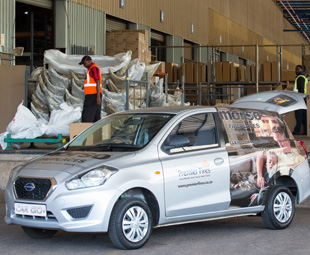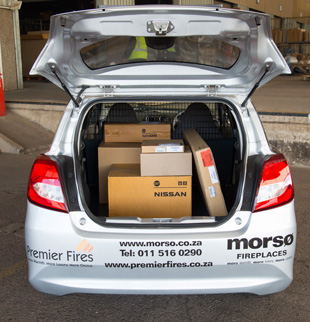Datsun’s solution for entrepreneurs

Aimed at young entrepreneurs with a need for a workhorse that can also be used as an after-hours leisure vehicle, the Datsun GO+ Panel Van has been launched to the market.
“Since we re-introduced the Datsun brand into South Africa in late 2014, we have stayed true to our mission of bringing reliable, attractively priced vehicles to the market to primarily meet the needs of motorists looking for value in difficult economic times,” says Vincent Cobee, global head of Datsun.
“The introduction of the Datsun GO+ Panel Van is an indication that we are meeting our commitment to extend our brand offerings to serve the needs of the wider South African market. It represents a watershed in our entry into the light commercial vehicle (LCV) category.”
With a loading capacity of 542 kg and a loading volume of 3,43 m³, the Datsun GO+ Panel Van features a solid partition to separate the cargo area from the driving compartment. The floor is made of galvanised steel and is topped with a sturdy mesh grill. All rear windows feature dark-tinted, smash and grab.
 Total cost of ownership has been a key design consideration. “We are aware of the cash constraints facing most of our potential customers within the small to medium-sized business sector and are pleased to offer the Datsun GO+ Panel Van at a recommended selling price of R149 900 (including VAT),” says Des Fenner, GM of Datsun South Africa.
Total cost of ownership has been a key design consideration. “We are aware of the cash constraints facing most of our potential customers within the small to medium-sized business sector and are pleased to offer the Datsun GO+ Panel Van at a recommended selling price of R149 900 (including VAT),” says Des Fenner, GM of Datsun South Africa.
While VAT-registered businesses can claim back VAT on the purchase of the vehicle, the GO+ Panel Van’s total cost per kilometre is claimed to be a mere 16 cents!
It is powered by a 50 kW 1,2-litre petrol engine that’s claimed to consume 5,2 l/100 km in an urban/country cycle.
“We are very excited about the introduction of the Datsun GO+ Panel Van, which we believe will become a firm favourite in the LCV vehicle segment, mirroring the successes already achieved by the Datsun GO in the A-segment. Although we are entering a competitive sector, we believe that the panel van’s class-leading loading capacity will be a major factor in its success,” concludes Fenner.
Published by
Focus on Transport
focusmagsa




